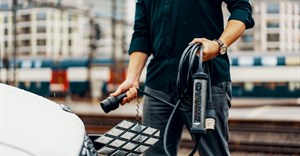
Subscribe & Follow
UK Supreme Court denies Dabus patent rights

The court was asked to consider two patent applications filed by Dr Stephen Thaler, who maintains that the inventions were created autonomously by Dabus and that he, as the owner of the machine, is the owner of the invention. This was rejected by the British Comptroller-General of Patents, whose decision was then further appealed in two lower courts, finally ending at the Supreme Court.
In reaching its decision, the Supreme Court relied on two substantive points. First, it considered the scope and meaning of an “inventor” in terms of the UK Patents Act and determined that an inventor must be a natural person. Secondly, whether Dr Thaler was nonetheless entitled to be an applicant if the inventor cannot be an AI powered machine.
Dr Thaler argued that as the owner and controller of the AI he was entitled to the “fruits” produced by Dabus, so he derived the rights to the invention through the doctrine of accession, usually reserved for tangible property. The court summarily dismissed the argument and found no basis to extend the doctrine to intangible property, highlighting that a patent is applied for and obtained for the technical advancement made by an inventor, not the tangible property created through that advancement per se.
Other rulings
This follows on the heels of similar judgments in other jurisdictions, including more recently the US Court of Appeals for the Federal Circuit. Dr Thaler had a glimmer of hope when an Australian lower court agreed with his submission, but this was later overturned on appeal to a higher court.
Interestingly, South Africa has already granted a patent where Dr Thaler was successful in naming Dabus as the inventor. Although this received much publicity, it is important to be aware that the South African Patent Office does not conduct substantive examination. Therefore, the issue of inventorship would only be decided should an application for revocation be brought against the patent on the ground that the patentee was not a person entitled to apply.
A person entitled to apply is an inventor or the person acquiring the right from the inventor, or both such inventor and other person. We have briefly considered the likelihood that the meaning of inventor would be restricted to a natural person in terms of the South African Patents Act which can be found here.
Questions not covered
In conclusion, it is worth noting that the Lords emphasised that the appeal was not concerned with the broader question whether technical advances generated by machines acting autonomously and powered by AI technology should be patentable.
Nor was it concerned with the question whether the meaning of the term “inventor” ought to be expanded to include machines powered by AI which generate new and non-obvious products and processes which may be thought to offer benefits over products and processes which are already known.
These questions raise policy issues about the purpose of a patent system which no doubt will be considered.
About Ramon Pereira
Ramon Pereira, Senior Associate and Patent Attorney at Adams & Adams










